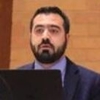- videocam On-Demand Webinar
- signal_cellular_alt Intermediate
- card_travel Personal Injury and Med Mal
- schedule 90 minutes
Traumatic Brain Injuries: Selecting the Right Experts to Demonstrate, Dispute the Existence and Extent of Damage
Strengths and Weaknesses of Different Specialties, Credentialing and Demeanor, Establishing Bias, Addressing Overreaching
Welcome to BARBRI, the trusted global leader in legal education. Continue to access the same expert-led Strafford CLE and CPE webinars you know and value. Plus, explore professional skills courses and more.
About the Course
Introduction
This CLE course will offer advanced guidance to personal injury attorneys proving or challenging the existence and extent of injury in traumatic brain injury (TBI) cases. The panel will explore what types of experts should be engaged, what to look for in credentialing and demeanor, and strategies for establishing bias, overreaching, or even incompetence in opposing experts.
Description
TBI is a leading cause of death and disability in the United States. Demonstrating TBI can be difficult due to the variety and complexity of brain injuries, the lack of objective diagnostic tests, the reliance on self-reporting of symptoms, and heightened scrutiny of claims by the defense.
Evidence of brain injury--brain malfunction--comes in three broad forms: brain imaging evidence, such as CT scans, MRIs, PET, and DTI, showing physical changes; neuropsychological tests such as videonystagmography, posturography, and brain mapping in addition to neuropsychological testing; or lay testimony showing changes in memory, cognition, mood, and behavior. These studies can show structural changes to the brain and related nervous system regions, damage to the central and peripheral nervous systems based upon physiological abnormalities revealed, and cognitive (including memory)/behavioral/mood dysfunction shown through neuropsychological test results. Counsel must coordinate multiple experts, and both sides must understand the mechanics of deposing and cross-examining them.
Listen as this experienced panel offers advanced guidance for establishing or challenging the existence and extent of TBI and reviews best practices for assembling and coordinating the right experts.
Presented By

Mr. de Saint Phalle has established himself as one of California’s top personal injury trial lawyers, having personally litigated multiple cases to settlement, verdict, or judgment with awards in excess of $1,000,000 and as high as $25,000,000. For the last fifteen years, he has been running a trial team dedicated to the representation of injured individuals in California which has handled matters specializing in civil litigation that involve complicated medical issues and disabilities. Mr. de Saint Phalle is an accomplished civil litigator in a variety of areas, including industrial accidents, product liability, exceptions to workers’ compensation, premises liability, professional malpractice, auto, bicycle and boating accidents, as well as business disputes.

Licensed as a chiropractor, Dr. DeGaetano has worked with medical doctors, chiropractors and law firms all over the United States to help professionals work together across disciplinary lines. His areas of expertise include whiplash and brain trauma, the biomechanics of spine trauma, soft tissue injury and repair, pain and proprioceptive neurology, and the management of spine and spine-related disorders.

Ms. Leary is an associate in the Rains Lucia Stern St. Phalle & Silver, PC (“RLS”) Personal Injury and Workers’ Compensation Groups. She represents people who have suffered serious injury as a result of negligence, including personal injury actions, intentional torts and whistleblower actions. Ms. Leary earned her B.A. in political theory from the University of San Francisco, graduating Summa Cum Laude. She earned her J.D. from the University of California at Davis, and was a recipient of the Dean’s Merit Scholarship.

Dr. Kevin Rosenblatt is the Chief Scientific Officer and Lab Director at Brazos Pathology, LLP. He has more than 30 years of clinical and biomedical research and development experience in multiple settings, including academia, biotech, startups, and clinical practice. Dr. Rosenblatt has published more than 80 peer-reviewed articles and book chapters on cancer, neuronal biology, biomarker development, and clinical genomics and proteomics, and he gives lectures at various national and international meetings in these areas. After completing his training in the combined MD-PhD program at the University of Texas Southwestern Medical School, he completed his residency in pathology and a research fellowship in cancer signaling and predictive biomarkers at the National Cancer Institute/FDA. Dr. Rosenblatt served as Director of the Center for Clinical Proteomics at the Brown Foundation Institute of Molecular Medicine and as the Director of the Clinical and Translational Proteomics Service Center at the UT Health Science Center. He was Associate Professor in the Division of Oncology, Department of Internal Medicine at UT Health and the McGovern Medical School and Associate, and Adjunct Professor in the School of Health Professions at the MD Anderson Cancer Center.

Dr. Rubaye is an experienced Psychiatrist and entrepreneur with a demonstrated history of working in the mental health care industry. He is skilled in rTMS, Katamine/ Esketamine Treatment, Zulresso (brexanolone) Infusion, Clinical Research, Medical Education, fMRI, and Neuropsychiatry. Mr. Rubaye is currently licensed in TX, CA, CT, OH, HI, NY, and NJ.
-
This 90-minute webinar is eligible in most states for 1.5 CLE credits.
-
Live Online
On Demand
Date + Time
- event
Wednesday, March 5, 2025
- schedule
1:00 p.m. ET./10:00 a.m. PT
- Defining TBI
- Causation and mechanism
- Selecting the right TBI experts for the case
- Supporting and challenging imaging
- Traditional imaging
- CT
- MRI
- DTI
- Traditional imaging
- Supporting and challenging behavioral testing
- Supporting and challenging biomarker testing
- Cross-examination strategies
- Recording examinations
The panel will review these and other pivotal questions:
- How should attorneys for both sides evaluate causation?
- Should every TBI plaintiff undergo neuropsychological testing?
- What are the best strategies to present evidence of cognitive or behavioral dysfunction?
Unlimited access to premium CLE courses:
- Annual access
- Available live and on-demand
- Best for attorneys and legal professionals
Unlimited access to premium CPE courses.:
- Annual access
- Available live and on-demand
- Best for CPAs and tax professionals
Unlimited access to premium CLE, CPE, Professional Skills and Practice-Ready courses.:
- Annual access
- Available live and on-demand
- Best for legal, accounting, and tax professionals
Unlimited access to Professional Skills and Practice-Ready courses:
- Annual access
- Available on-demand
- Best for new attorneys
Related Courses
Recommended Resources

Making Continuing Education Work for You, Anytime, Anywhere
- Learning & Development
- Career Advancement

Getting the Most Out of BARBRI Resources
- Learning & Development
- Business & Professional Skills
- Talent Development


